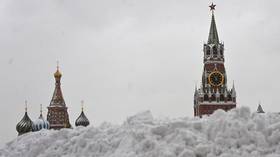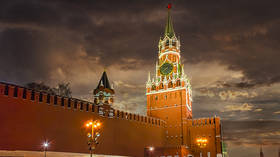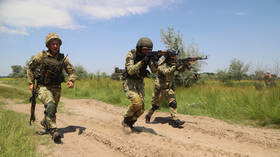Why do so many people hate Russians?

When it comes to hatred of Russia, its strongest proponents often defend themselves by claiming they hate the government, not the people. Disagreements with policy are, of course, understandable, but the truth is that many are simply xenophobic.
Debates over a political decision or the competence of a particular figure in Russian politics are a genuine and desirable form of discourse. Criticisms of Russia’s actions in Ukraine, President Vladimir Putin’s broader policies, pension reform or the country’s poor Covid-19 vaccine rollout are totally valid.
The demonization of the Russian people, on the other hand, is not. However, in recent times, many of the country’s most vocal detractors have shown their true colors. They don’t hate the government. They hate Russians.
Front and center, of course, is the well-known Russophobe Toomas Hendrik Ilves, a former Estonian president-turned-Twitter troll.
The American-raised Ilves, who once ran a desk for US state-run RFE/RL, previously mocked the suicides of overstressed Covid-19 doctors and once proposed banning all Russians from entering the EU. He has now turned to dubbing the natives of the world’s largest country “apes.”
In response to a former Latvian MP, Veiko Spolitis, calling Russians “primates,” Ilves quibbled that this would be too advanced a classification because that would put them too genetically close to human beings. “Veiko, you keep writing ‘primates,’ but homo sapiens are also primates. I would go with ‘apes,’” the two-term president wrote. Spolitis agreed, claiming humans have “undergone total retrograde,” effectively suggesting Russians are Untermenschen.
While many people from the Baltic states have legitimate grievances with Moscow, after more than 100 years of bitter history, it is clear the Kremlin is not the target of their Russophobia.
Hatred of Russians is, of course, not limited to politicians from the former Soviet Republics. In 2017, former US Director of National Intelligence James Clapper branded Russians as “genetically driven” to be untrustworthy.
And it’s not just officials. In recent years, the Western press has repeatedly platformed xenophobes who appear to hate every fiber of every Muscovite. In 2019, the New York Times published a particularly distasteful op-ed declaring that “corruption is in Russia’s DNA” and “sharing’s not the Russian way.” Around the same time, a piece in America’s The Atlantic alleged that kleptocracy had been invented by Moscow.
All these statements in their various forms seem to fly under the radar for the Western commentariat, often being challenged only by a handful of insulted Russians, despite a media landscape that is otherwise hawk-eyed for any perceived slights against entire groups of people. For some reason, Russians appear to be the sole exception and the focus of an acceptable form of hatred.
Russophobia isn’t a new thing, either. Initially coined by Russian diplomat Fyodor Tyutchev in the 19th century to describe the stance of pro-Western Russian liberals, the term has been in use ever since, invoked more regularly in recent years.
Defenders of anti-Russian xenophobia often point to Moscow’s tendency to dismiss any foreign criticism of the country as “Russophobia,” suggesting it is not real, or that Moscow invented it as a “weapon” to be wielded. The EU’s European External Action Service has even dubbed it a “myth.”
Of course, not all anti-Russian speech is Russophobia, and disagreements with policy or politicians certainly aren’t, so the reflex to label it as such is simply improper. This was recently highlighted by the US State Department, which claimed that Moscow too often cries “Russophobia” and chooses to employ the term when it “wants to play the victim.”
In recent times, the most obvious example is Russia’s claim that xenophobia is the reason for the lack of World Health Organization certification for its Sputnik V Covid-19 vaccine. While Sputnik V has shown itself to be a very effective jab, the Kremlin has admitted that it did not provide “some information that should be submitted for certification,” explaining that there was a misunderstanding about standards and the correct paperwork had not been handed in.
However, hatred peddled by the likes of Ilves and Spolitis, which appears to paint the Russian people as “other,” certainly can be classed as anti-Russian xenophobia.
And the thing is, unfortunately, people seem to get away with it. Blatant hatred of Russians is rewarded with think-tank fellowships, talk-show gigs, and jobs at prestigious universities, with little or no consequence for speech that would be career-canceling if directed at any other nationality.
The likes of Ilves should be shut out from this field for good, and serious debate, without xenophobia or slurs, should be promoted instead. Genuine discussion about the Kremlin and the country's political leaders, and choices, ought to be encouraged, while those seeing to demonize an entire nationality should be shunned.
Russophobia may be the last acceptable form of xenophobia, and it should be constantly and continuously pointed out until those who spew it are finally ostracized.
The statements, views and opinions expressed in this column are solely those of the author and do not necessarily represent those of RT.














